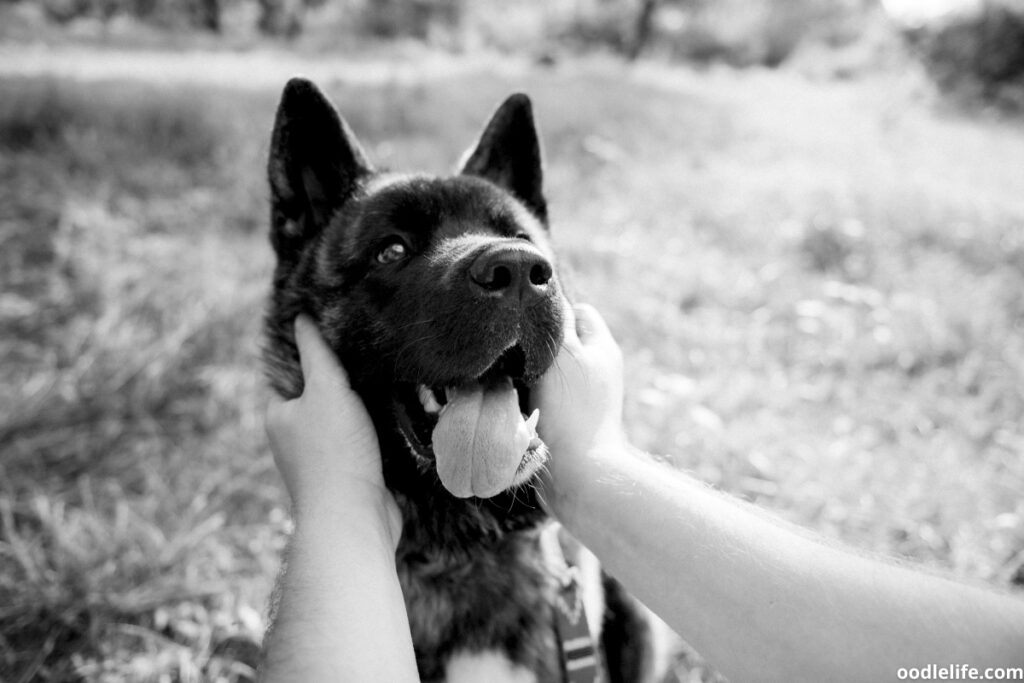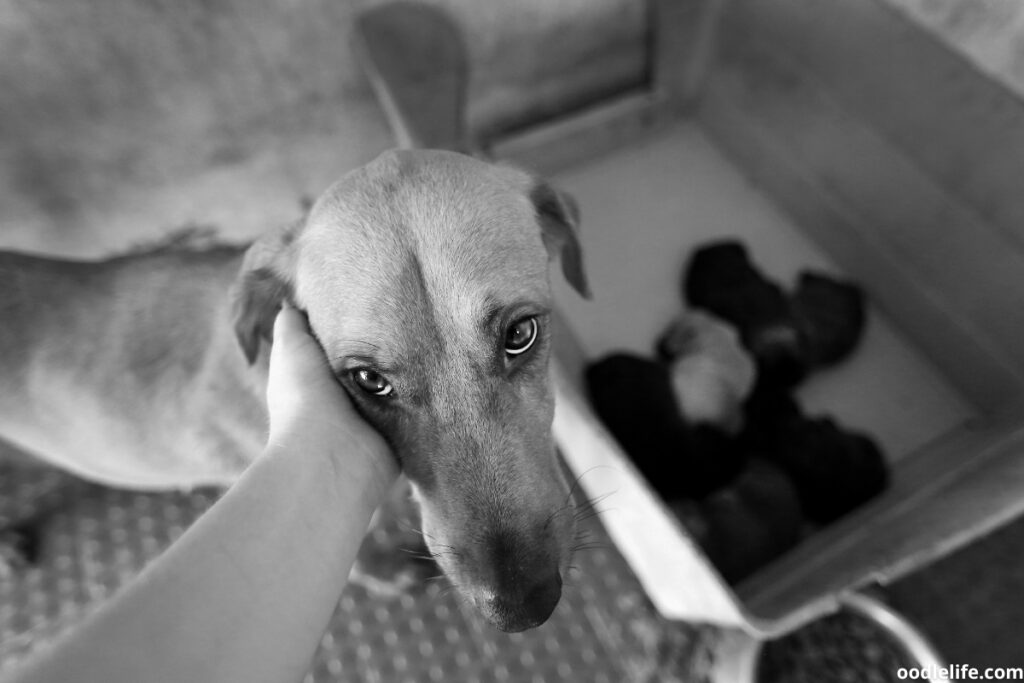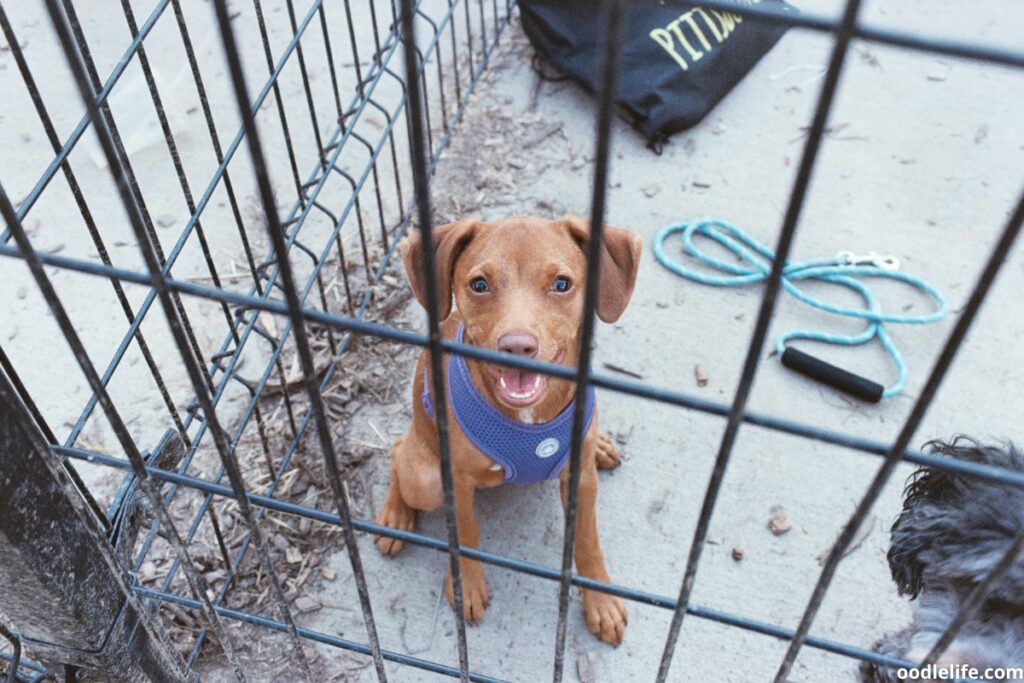What Dogs Are Banned in California: Key Insights and Regulations
California is known for its picturesque landscapes, diverse culture, and thriving economy. But, like many other states, it also has its share of legislations addressing the issue of dog breeds. While the Golden State doesn’t implement an outright ban on any specific dog breeds, the topic of breed-specific legislation remains hotly debated.
Some argue that these restrictions are necessary for public safety, while others insist that they unfairly target certain breeds without addressing the root causes of dog-related incidents.
This article will explore the current state of breed-specific legislation in California, and shed light on any restrictions that may affect dog owners or potential adopters. From understanding local policies to the changing landscape of public opinion, we will aim to provide an insightful and unbiased overview of the situation.
In order to navigate the complex world of breed-specific legislation, it is essential to examine the facts and take a closer look at the various breeds involved. By doing so, readers can gain a better understanding of the reasons behind such restrictions, and perhaps even find some common ground between those for and against these bans.
Banned Dog Breeds in California
In short, there are no breeds of dog that are statewide banned in California! However it is no so simple for some breeds.

Pit Bull
In California, there is no statewide ban on specific dog breeds. However, certain cities and counties within the state have enacted breed-specific legislation (BSL) targeting Pit Bulls due to their perceived aggressiveness.
These regulations can range from mandatory sterilization and registration to restrictions on ownership. Pit Bulls are often misunderstood, and their behavior is heavily influenced by factors such as poor breeding, negligence, and lack of proper training.
PuppySpot is a reputable dog marketplace where you can browse and find compatible puppies right from the comfort of your home. They have placed over 200,000 puppies into homes in the US!
Rottweiler
Similar to Pit Bulls, Rottweilers are not banned statewide in California but face restrictions in some cities. As a large and powerful breed, Rottweilers have unfortunately gained a reputation for aggression, leading some communities to place restrictions on ownership. However, a responsibly trained Rottweiler can be a loyal and loving companion.
Cane Corso
Cane Corsos have occasionally been subject to breed-specific legislation in California, although the breed is not banned at the state level. Known for their strength, they are often unfairly labeled as dangerous. Nevertheless, a well-trained Cane Corso can make an excellent family pet.

Akita
Akitas are not banned statewide in California but may face restrictions in some communities due to their size and temperament. Akitas are loyal and loving towards their owners, but they can be reserved around strangers, making some people wary of the breed. However, proper training and socialization can help create a well-mannered Akita.
German Shepherd
Although not banned statewide in California, German Shepherds face restrictions in certain communities. German Shepherds are known for their loyalty, intelligence, and protective nature. This breed’s reputation as police dogs may contribute to their perceived aggressiveness, but like any dog, a well-trained German Shepherd can be a wonderful family companion.
Doberman Pinscher
Doberman Pinschers are not banned in California but may face restrictions in specific communities. Known for their intelligence and loyalty, Dobermans sometimes face unjustified prejudices due to their protective nature. A properly trained and socialized Doberman can be a loving and obedient addition to any household.

Chow Chow
Chow Chows, like other breeds mentioned, are not banned statewide in California. However, some cities may have breed-specific legislation. Chow Chows are known for their distinctive appearance and independence, which might cause some misunderstanding regarding their temperament. Early socialization and training can result in a friendly and well-behaved Chow Chow.
Dogue de Bordeaux
The Dogue de Bordeaux, also known as the French Mastiff, is not banned in California. However, this powerful breed may be subject to restrictions in some California cities. With proper training, these gentle giants can make affectionate companions for experienced dog owners.
Wolf-Dog
California does have strict regulations for the ownership of wolf-dog hybrids. Direct ownership of these animals is discouraged, and strict licensing requirements are in place for anyone attempting to keep a wolf-dog as a pet. Their wild nature and unpredictable temperament make them a challenging breed for even experienced owners.\
Reasons for Breed Bans

Public Safety Concerns
One of the primary reasons for breed-specific bans in California is public safety concerns. Certain dog breeds, such as pit bulls and rottweilers, are often perceived as more dangerous due to their size and strength. Some incidents of severe injuries or even deaths caused by these breeds have contributed to this perception1. However, it’s important to note that many factors influence a dog’s behavior, such as training, socialization, and the owner’s responsibility. Bully breeds, for example, can be loving and gentle when raised in a responsible and nurturing environment.
Breed Discrimination
Breed discrimination plays a significant role in why certain dog breeds are banned in California. This is often based on misconceptions and stereotypes around specific breeds as being inherently aggressive or dangerous. Such misinformation leads to legislation that targets these breeds rather than focusing on responsible ownership and education on dog behavior. This type of legislation can have unintended consequences, such as the abandonment or euthanasia of dogs based solely on their breed.
Racism
Believe it or not, racism also plays a part in breed-specific dog bans. Some people associate certain breeds, like pit bulls, with specific racial or ethnic groups and may view them as a reflection of the owner’s personality or status. This unjust association can lead to prejudice and discrimination against both the dogs and their owners. In a diverse and progressive state like California, it is essential to recognize this issue and work towards a more inclusive and compassionate approach to dog ownership and regulation.
In conclusion, breed bans in California are driven by various factors such as public safety concerns, breed discrimination, and racism. Understanding these underlying motivations and addressing them through responsible ownership, education, and legislation that targets behavior rather than breed can help create a safer and more inclusive environment for all dogs and their owners.
Footnotes
Effects on Dog Owners and Pets

Legal Responsibilities
In California, specific dog breeds are not banned, but the legal responsibilities of dog owners focus on promoting responsible pet ownership to ensure public safety. One example is the law requiring owners to control their dogs’ behavior, be it through proper training or effective containment measures. Failing to do so may lead to legal consequences like fines or possible criminal charges1.
Moreover, California law requires dog owners to take proper care of their pets and treat them humanely. Neglect or abuse can result in severe penalties, reflecting the state’s dedication to the wellbeing of all companion animals.
Service Dogs
For individuals with disabilities utilizing service animals, California has specific regulations in place. Service dogs, irrespective of breed, are allowed in public spaces and housing facilities to assist their owners2. This means that even if a particular breed were to be banned, exemptions would be made, ensuring no one is left without their essential support companion.
Service dogs undergo specialized training to perform tasks and assist their owners, so they are typically exempt from any breed specific legislation that could impact other dogs in the community.
The state encourages a responsible approach to owning pets, focusing on the well-being and safety of all its residents. By recognizing the importance of dogs in the lives of their owners and the community, California strives to balance public interests with compassion for its furry citizens.
Footnotes
- https://heinonline.org/hol-cgi-bin/get_pdf.cgi?handle=hein.journals/vllalr47§ion=20 ↩
- https://link.springer.com/article/10.1007/s11205-007-9142-2 ↩
Exceptions to Breed Bans
Though California has some restrictions and regulations regarding certain dog breeds, there are noteworthy exceptions when it comes to professional canines. In this section, we will explore three types of dogs that are typically exempt from breed bans: Search and Rescue Dogs, Police Canines, and Crowd Control dogs.
Search and Rescue Dogs
When disaster strikes and people are in need, search and rescue dogs are there to save the day. They are highly trained to locate missing persons and assist in emergency situations.
Even if a dog belongs to a breed that may face certain restrictions in California, their hero status usually grants them an exemption from these regulations. So, a search and rescue pit bull could potentially go about its life-saving duties without any legal issues. It’s like they have their own superhero cape, shielding them from breed-specific laws!

Police Canines
Law enforcement agencies often rely on dogs for a variety of purposes, including detecting illegal substances, apprehending criminals, and tracking missing persons. Police canines are generally exempt from breed-specific legislation in California due to their essential roles in assisting officers and keeping communities safe. Just imagine a police officer telling their trusty K9 partner, “Sorry, buddy. You can’t help catch the bad guys today; you’re banned.” Thankfully, that’s not the case in the Golden State.
Crowd Control
When it comes to managing large crowds and maintaining public order, some dogs are valuable members of the security team. These canines are trained to handle high-stress situations and provide non-lethal solutions in potentially volatile environments. Once again, these skilled dogs usually receive exemptions from breed bans in California, as their expertise in crowd control is considered valuable and irreplaceable. After all, it’s hard to argue with a muscular, well-trained pup draped in a tactical vest and ready for duty.
To sum it up, while some dog breeds might face restrictions in California, dogs involved in search and rescue, police work, and crowd control tend to enjoy an exemption from breed bans in the state. It’s clear that when a dog is on a mission to save lives or maintain order, breed labels take a backseat to their invaluable skills and contributions.
Other Banned Animals in California
Wild and Exotic Mammals
In addition to some dog breeds, California has strict regulations on keeping other wild and exotic mammals as pets. For instance, it’s illegal to have a lion, tiger, or bear as a roommate, even if you’re inspired by “The Wizard of Oz.” Ferrets, hedgehogs, and gerbils are also on the list of banned animals in the Golden State. Monkeys, squirrels, and sugar gliders might be cute, but they don’t make the cut either, as these furry critters are also prohibited.
Interestingly, mongooses are banned in California even though they are often glorified for their snake-battling capabilities. But don’t worry, if Snakemaster Mongoose was planning a move to Hollywood, he’d have to leave his mongoose pals behind.

Dangerous Birds
You might be surprised to learn that some birds are also on California’s prohibited pets list. These include certain species like monk parakeets. So while you might enjoy watching monk parakeets performing their amusing acrobatics in YouTube videos, you won’t be allowed to have one parading around your apartment in California.
Prohibited Reptiles and Fish
Reptile enthusiasts, you might want to think twice before moving to California, as some creatures simply won’t be allowed to make the trip. African clawed frogs, for example, are strictly prohibited despite their fascinating ability to generate underwater oceanic ballets.
For fish fans, keeping a tank full of piranhas is out of the question in the state. Though the 1978 horror film “Piranha” might make turning down the opportunity to own one of these toothy swimmers a little easier.
In conclusion, while California is famous for its warm climate and beautiful landscapes, it’s definitely not an exotic pet lover’s paradise. You’ll have to leave your wild and exotic pets at home and stick to traditional dogs and cats if you want to soak up the California sun. Remember, ferocious felines, funky birds, and devilish reptiles might be exciting, but in California, it’s all about safety first!
California’s Animal Welfare Legislation
In California, the lawmakers have taken considerable steps to ensure the well-being of animals. For example, the state has implemented restrictions on certain dog breeds to prevent any potential harm to people and other animals.
One legislative effort to protect animals in California is related to the prohibition of hunting contests. These competitions often involve the killing of specific species in large numbers, and this legislative action helps maintain a safe and balanced ecosystem for all species involved.
Another critical aspect of California’s animal welfare legislation is addressing the issue of animal abuse. In particular, the state has enacted laws to govern the tethering of dogs, aiming to prevent cruelty or mistreatment. It’s no laughing matter when it comes to the Golden State’s dedication to promoting suitable living conditions for our four-legged friends.

California legislation also covers the ethical treatment of animals in other industries, such as farming, cosmetics, and pet stores. By ensuring these enterprises maintain high standards for animal care, the state aims to minimize any unnecessary suffering or harm to animals in various capacities.
Training practices for animals have also been a target for California’s legislation. For example, the use of harmful or cruel training methods, like shock collars or physical discipline, are monitored and regulated to ensure a more humane and fair approach to teaching our beloved pets.
In a nutshell, California’s animal welfare legislation covers an extensive range of subjects, including hunting, training, abuse, and even the farming and sale of animals. As such, the state takes a comprehensive and compassionate approach when it comes to animal welfare, and that’s something to give a round of “appaws.”







![How To Stop A Dog From Howling [Guide]](https://poodle.club/wp-content/uploads/2023/08/how-to-stop-dogs-from-howling-768x512.webp)